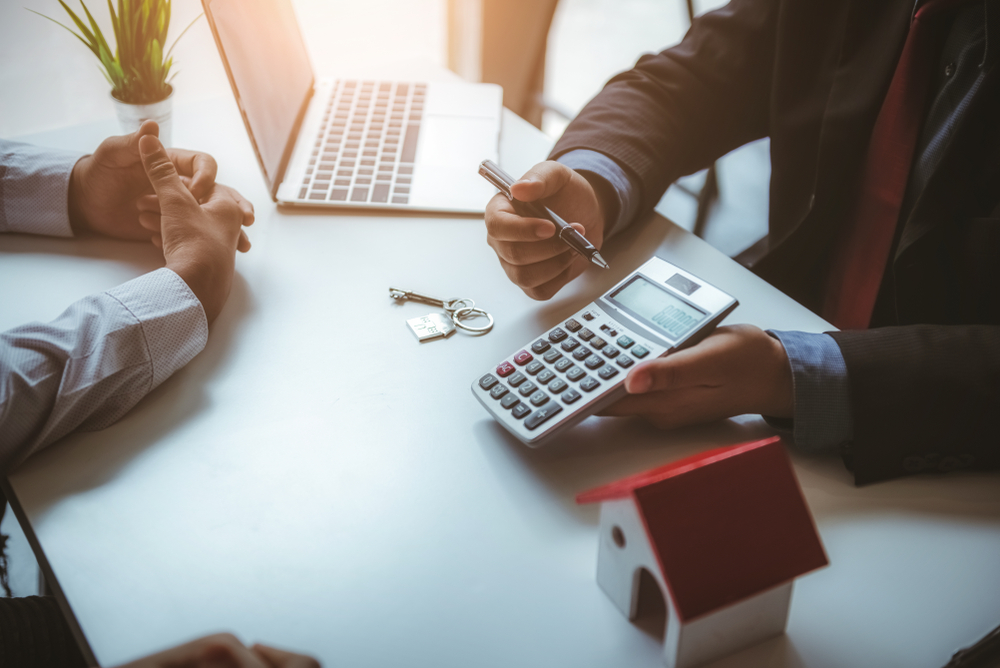Developing good financial habits often takes years but it is very worth the effort to learn to be more responsible with your spending and to develop good practices. You will be able to more easily keep your family out of debt when you have your finances under control, you’ll be able to get the financing you need when you want to make big purchases such as buying a new car or home, and you will be able to keep a top credit score which will often mean lower interest rates.
The result of making bad decisions often causes financial problems and these create additional issues a person has to deal with. It will be necessary to identify these poor financial habits in order to protect your financial future and you will need to understand how to avoid making those mistakes. Making an occasional financial mistake is okay. It is not acceptable, however, to form bad financial habits that lead to routine mistakes.

1.Using Credit To Overspend
Having credit cards available for emergencies is not bad. The problem is when you use those credit cards irresponsibly and overspend. If the payments on those cards end up being more than your entire monthly income, that is a problem and it is a financial habits that you need to break.
The solution to this is simple and it is to be more responsible with those cards. Most purchases should be made when you can pay it off at the end of the month and avoid any interest and at most, you should never buy something that you cannot pay off within a maximum of 3 months. If you find that you are only making the minimum payment required by your card then that tells you that you’re heading down the wrong road. The only way you can avoid a financial disaster is to prevent yourself from making purchases that will generate ongoing monthly payments that go on for years.
You might want to consider creating a savings account that is specifically for making purchases that would otherwise be made with a credit card. If, as an example, you need to replace your TV then you could save up for that purchase rather than using a card. Buying something with a credit card that takes more than 3 months to pay off is not recommended.
2. Fail To Create A Monthly Budget
One of the most common failures people have financially is to not even know how much they really need to pay their bills and other expenses each month. The only way to really monitor this is to create an actual budget. On average, those who don’t have a written monthly budget are the very same people that are over-extended and heavily in debt.
You can make a simple budget by listing all of your expenses and bills on a piece of paper and then use that to schedule the payments based on when you get paid each month. There are a number of computer programs you can use to help create this budget as well. It is very bad for financial habits to not keep a monthly budget.
3.Buying On Impulse
It is a common joke that people make when they buy impulsively but it is one of the worst financial habits you can get into. When you buy things that you want but don’t really need you will overspend. When a person fails to pay attention to their impulse spending it can mean that they overspend by hundreds of dollars every month which will often lead to crippling debt.
This can be easily avoided by planning your trips when you’re going shopping and to only buy the things you decided that you need. A good financial habit is to control your impulse purchasing, you should try bringing only the cash you’ll need for those things you plan to buy and leave things like your checkbook and credit cards at home.
4.Overspending By Creating Unnecessary Monthly Expenses
If you have financial habits like stopping off at your favorite coffee shop for a $6 latte, you are creating unnecessary monthly expenses. If you did this only occasionally it might not be so bad but when it becomes a habit it’s wasted money. You can easily rack up a $30 to $40 a week expense which can add up to $1,500 to $2,000 a year. You could save that by simply bringing a cup of coffee from home.
Not paying attention to your spending will make it easy to allow it to get out of control but it is similarly easy to curb that spending and start buying only the things you really need. To get started down a more positive path you should start tracking all of your spending so that you know exactly what you’re buying and how much you’re spending and from there you can decide which things you really do need. When you begin tracking your spending you can see where you’re wasting money. Once you know where your money is being wasted it will become easier to start forming better financial habits.
5.Making Late Credit Card Payments
A surprising amount of people regularly pay their credit cards late every month. If this is you then you might think that as long as those companies get their money before the payment is more than 30 days late it’s no problem. The fact is that there are several things that will hurt your finances when you make these payments late regularly.
Whenever you fail to pay your card on time a late fee is applied and additional interest is added. Late fees can often be $30 or more for each late payment. These things just waste your money.
Making your payments late can have an effect on your credit score. When you pay your bills late regularly it can soon erode your credit score. By simply changing your financial habits to paying your bills on time you can soon fix any derogatory effects you’ve had on your credit score.
6.Failure To Plan Long-Term
The average person does want to be able to retire someday. If this includes you then the question is, what have you done to prepare for that retirement? If you are one of the few who actually has a retirement plan offered through your job then you will still need to make sure that it’s going to provide enough income so that you can be comfortable.
Unfortunately, those who have developed poor financial habits often treat their retirement as an afterthought. The average person will create their retirement account and faithfully make contributions to it without knowing whether it will be enough or not. A good habit is to start talking with a certified professional about your retirement and get their help in making long-term plans that make sense for you.
To help with retirement planning, read “Best RRSP Investing Basics for Beginners“.
7.Failure To Have A Contingency Plan
On any given month an emergency could happen that puts you into a financial bind. When financial challenges arise many people get themselves into trouble with their credit by relying on credit cards to get them through the unexpected event. This type of habit is the very kind that puts people into insurmountable debt that causes financial headaches for years.
One way to avoid this is to establish a savings account that is there for such emergencies. This is a separate savings account from one that you might have set up for making large purchases. Both of these accounts can be used as part of planning carefully for future needs. The account for emergencies is used only for such events so that you don’t need to use credit cards to get through the emergency.
8.Failure To Plan For The Future
Have you made any major changes to your life such as getting married? Lots of people have significant changes happen without ever making any changes to their financial plans. You have to make necessary changes to your financial planning that coincide with the other major changes in your life. Failing to do this is how people find themselves overwhelmed with debt and desperate.
One type of situation is when your child reaches college age. When your child was first born you may not have thought about the cost of your child going to college. But when parents fail to take advantage of the 17 years they have from the birth of their child to when they will go to college it could cause a number of financial issues.
You will find that it’s advantageous to take advantage of those years and set aside a certain amount of money each month over those years. Just as soon as your child is born you should start saving for their college tuition. By doing that you will have the money needed when your child is ready for university.
9.Redundant Spending
Are you using both a landline at home and a cell phone? Do you pay for streaming movies online as well as cable or satellite TV? Often these are unnecessary expenses that create redundant spending. It leads to spending money every month that is unnecessary.
You should take a look at the services you have and get rid of those that are unnecessary. When you are considering buying a new product, consider whether or not you have something similar that can do the same thing. If you already have a product or service that does something similar then don’t buy the new thing unless it’s really needed.
10.Failure To Take Advantage Of Better Pricing
If you’re considering buying a car you should ask yourself if a brand new one is really necessary. You could buy a very reliable used car and save thousands of dollars on the price. The average person regularly spends money without taking full advantage of the best pricing deals that are there for the taking.
If you need a big purchase like a car you might well want to consider buying one that is reconditioned rather than brand new. You should also check with the retailer to see if there are any special offers on trades or discounts that are available and take advantage of any coupons when it’s possible. Very often you might be spending hundreds of dollars that could be saved by developing these new spending habits.
11.Failure To Maintain Your Products
Maintaining large purchases such as your car can save you money and a failure to do so can cost you considerably. Having your furnace properly maintained by professional each year can extend its life and save you considerably. People make the mistake of trying to save money by putting off these maintenance costs when it actually cost them in the long run.
Following proper maintenance procedures can save you a lot of money on future repairs and replacement costs. If you have an expert come to inspect your roof they may be able to find repairs that can be easily and inexpensively done that will extend the life of your roof and save you on replacing it.
The act of developing good spending habits can put real money in your pocket and make your life easier. Taking a little time to understand the necessary steps can help you get your finances under control. This will then allow you to avoid debt and hassles which will reduce the stress that it often causes.



